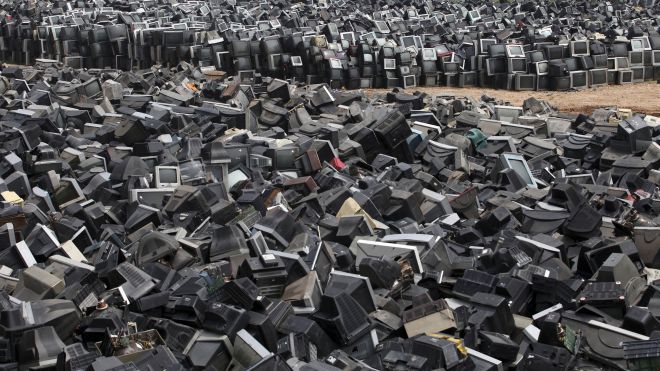![This August 2013 photo depicts a landfill of television sets awaiting recycling in Zhuzhou City, China. [AP]](http://www.jstudentboard.com/reporter/wp-content/uploads/2014/02/45e7f55251791e213f0f6a706700c0f0-300x168.jpg)
Although recycling is beneficial for our environment, there are also disadvantages.
Ironically, some acts of trying to better our environment through recycling may worsen the environment in reality. Some recycling processes release chemical wastes and toxins. According to the Conserve Energy Future website, recycling locations can be unsafe and unsanitary with debris and disease. These contaminants, if mixed with our drinking water, can put our health in danger.
Another problem is that not everything that people send to recycling centers can actually be recycled. These items are therefore grouped together to form landfills. In landfills, litter may stay put for hundreds of years and eventually form huge mounds like those at the Matanzas landfill in Argentina. Leaving waste in areas like this causes air and land pollution.
Transmitting recyclables to China, one of the countries to which 85% of US recyclables are sent to be processed, also pollutes. For many years, China has been the leading nation in processing recyclables and has used the recycled materials in its huge manufacturing industry. Yet sending tons of recyclables increases the number of landfills in China. Hauling tons of plastics and metals on large, industrial ships also pollutes both the air and water.
So instead of merely recycling, people should focus on how they can also reuse and reduce their waste. People have the power to control the amount of objects they buy and how long they use them before putting them in the recycling bin.
Instead of immediately recycling plastic bags, for example, reuse them as shopping bags or use them as trash bags in the house. Instead of buying the pre-packaged fruits in plastic containers, purchase the loose fruits that you can pick yourself.
Those are just two examples of how you can reuse and reduce. Be aware of these cautions and think before you throw!

